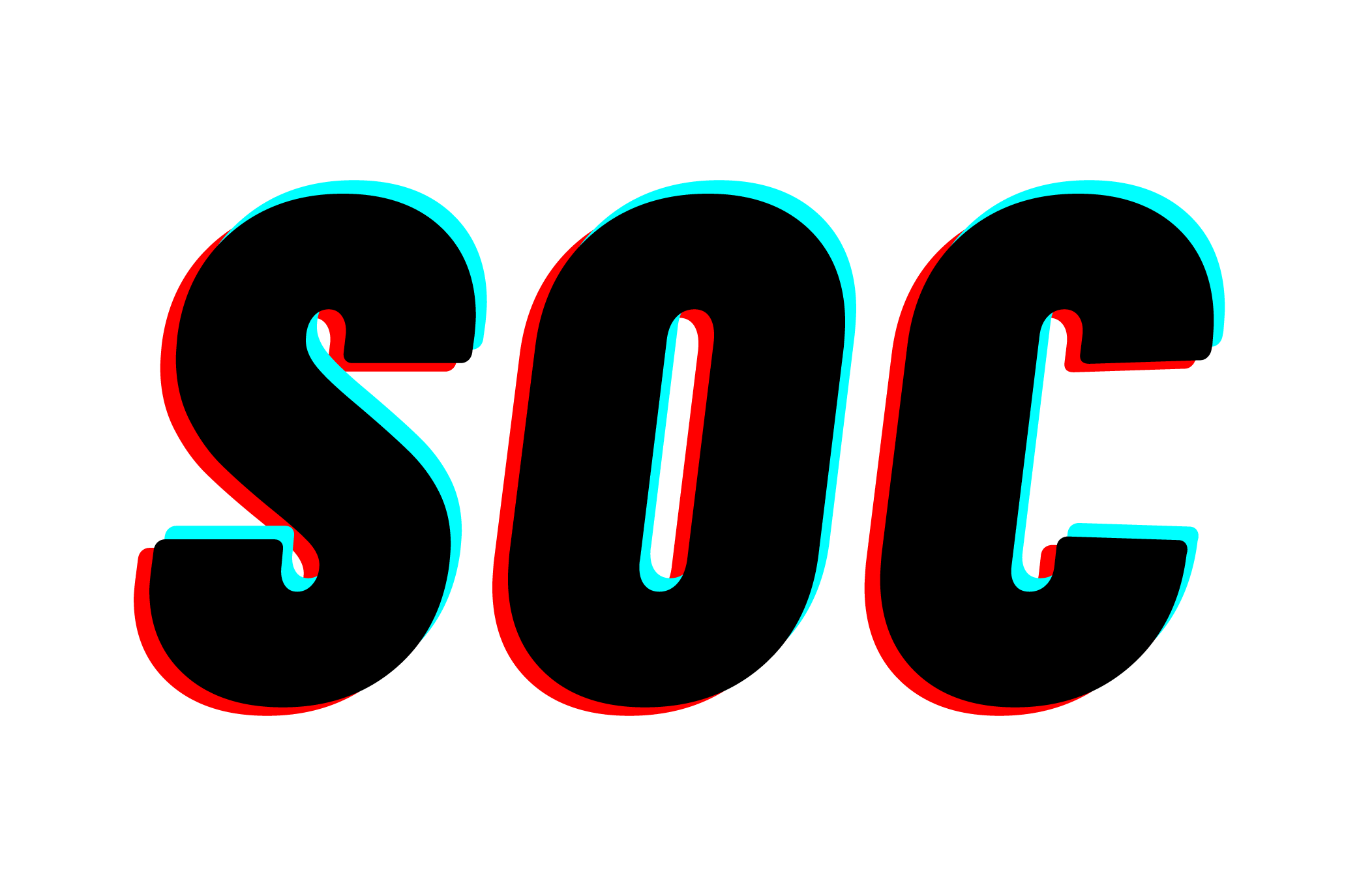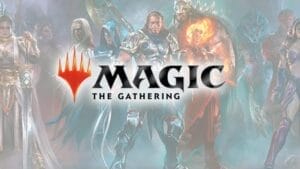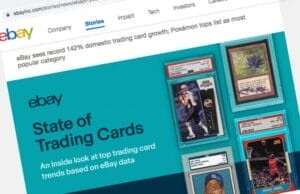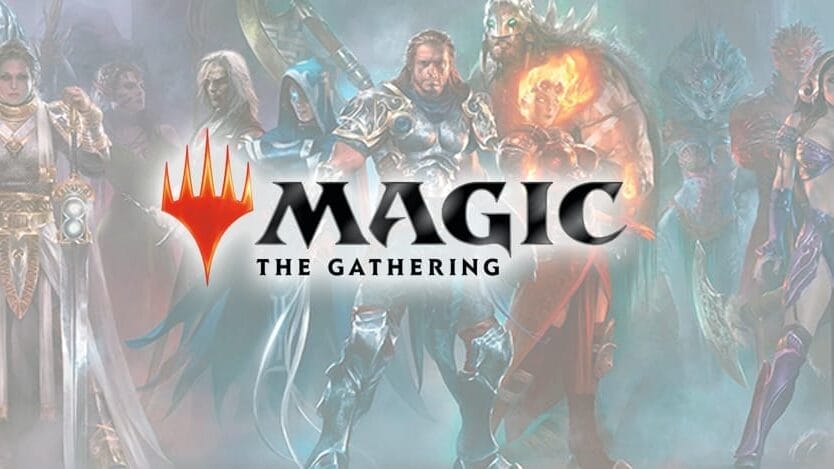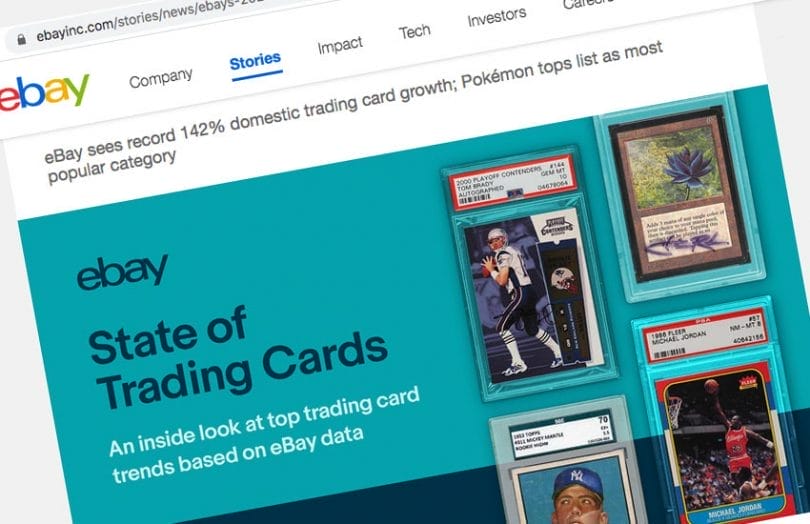![Trading Cards Dictionary: The Best Glossary of Terms and Acronyms for Collectors [2023] 1 Trading Cards Dictionary: A Glossary of Terms and Acronyms for Collectors](https://ehgoaqsaerr.exactdn.com/wp-content/uploads/2023/09/joshua-hoehne-1UDjq8s8cy0-unsplash-1-edited-scaled.jpg?strip=all&lossy=1&ssl=1)
Introduction
Welcome to the world of trading cards!
For those new to the realm of card collecting, the jargon can be a bit overwhelming. But fear not, this trading cards dictionary is designed to help you navigate this fascinating hobby with ease. We’ll be decoding the collector’s dictionary, introducing you to the essential words every card enthusiast should know.
Understanding the language of card collecting is not just about impressing fellow collectors with your knowledge. It’s also about making informed decisions when adding to your collection. Being familiar with these terms can help you evaluate the worth of a card and understand its place in the market.
This glossary is designed to help you navigate the fascinating and sometimes complex language used by collectors. Whether you’re a seasoned enthusiast or a newcomer, this dictionary will serve as your go-to resource for understanding the terms and acronyms commonly used in the trading card hobby.
Table of Contents
The Language of Card Collecting
Card collecting has a rich history and a unique language all its own. From the condition of cards to the jargon used in trading, each term has a specific meaning that adds to the depth and enjoyment of the hobby. This language isn’t exclusive to seasoned collectors. It’s accessible to all who are interested in this captivating pastime.
In the world of card collecting, words like “rookie,” “insert,” and “refractor” have specific meanings that can significantly impact a card’s value. Knowing these terms is key to understanding the hobby and making wise choices when buying, selling, or trading cards.
In our journey to decode the collector’s dictionary, we’ll explore these terms and many more. By the end of this guide, you’ll have a solid foundation of knowledge to support your card collecting adventures.
Stay tuned for the next sections where we’ll dive into the key terms every card collector should know,, explore terms related to buying and selling cards, and finally, unlock the language of card auctions. Each of these sections will be packed with essential words, definitions, and examples to help you become fluent in the language of card collecting.
So, whether you’re a budding collector or an experienced enthusiast looking to brush up on your knowledge, keep reading. This guide is your ticket to becoming a card collecting pro!
Trading Cards Dictionary
A
- Acetate Card: A trading card made of clear plastic material, often used for special editions or inserts to give a unique, transparent appearance.
- AFA (Action Figure Authority): A professional grading service specializing in the evaluation and encapsulation of action figures and related collectibles. Their grading process assesses an item’s condition and ensures its authenticity.
- Alpha: Refers to the very first print run of the “Magic: The Gathering” card set. These cards are distinguished by their more rounded corners and are highly sought after by collectors.
- Alteration (Altered Card): A card that has been artistically modified after its original production. This can include extended art, color changes, or entirely new illustrations. While they can be visually appealing, altered cards are typically not tournament legal.
- Autograph: A card featuring the hand signature of the depicted athlete, artist, or other personalities. Autographed cards often carry a premium in value, especially if authenticated.
- Artifact: In games like “Magic: The Gathering”, an artifact card represents a non-living object with various abilities or effects that can be utilized in gameplay.
- Auction: A sales method where items, such as rare or valuable cards, are sold to the highest bidder. Websites like eBay are popular platforms for card auctions.
- Authentication: The process of verifying a card’s legitimacy, especially for rare, vintage, or autographed cards. Authentication ensures that a card is genuine and not counterfeit.
B
- Base Card: The regular cards in a set, excluding special editions, inserts, or variations. Base cards form the core of any card set.
- Beckett: A leading authority in the trading card industry, known for its card grading services, price guides, and publications. They provide valuations and condition assessments for a wide range of collectibles.
- Best Offer: is a feature on online marketplaces that allows buyers to make a price offer on a card listed for sale. The seller can then choose to accept, decline, or counter the offer. This can be a useful way to negotiate a fair price for a card.
- Beta: The second print run of the “Magic: The Gathering” card set, following the Alpha. Beta cards have less rounded corners than Alpha but are still among the earliest and most valuable MTG cards.
- Bid Increment: A bid increment is the amount by which the current high bid is increased. Each auction house sets its own bid increments.
- Binder: A protective album designed to hold and display trading cards. Binders contain clear plastic pages with pockets to securely store each card while allowing for easy viewing.
- BGS (Beckett Grading Services): The card grading division of Beckett. They evaluate cards based on various criteria, including centering, corners, edges, and surface, and assign a numerical grade representing the card’s condition.
- Blister Pack: Retail packaging for trading cards, often seen in stores. It consists of a sealed plastic bubble containing the cards, attached to a cardboard backing.
- Booster Box: A sealed box containing a specific number of booster packs from a particular card set. Opening a booster box is a popular way to acquire many cards from a new set at once.
- Booster Pack: A sealed package typically containing a random assortment of cards from a specific set. Collectors and players purchase booster packs to expand their collections or improve their decks.
- Box Break: A group activity where participants purchase slots representing teams or card attributes. A booster box (or boxes) is then opened, and the cards are distributed based on the slots. It’s a popular method for collectors to obtain cards from expensive boxes without buying the entire box.
- Buy It Now (BIN): is a term used on online marketplaces such as eBay. It allows a buyer to purchase an item immediately at a specified price, without having to wait for an auction to end. This can be particularly useful when you find a card you really want and don’t want to risk losing it in an auction.
- Buyback Card: A card that a manufacturer has repurchased from the public, then reinserted into new packs, often with an autograph, stamp, or other unique marking to denote its buyback status.
- Buylist: A list provided by dealers or stores indicating which cards they wish to purchase and at what price. It helps collectors and players know the value of their cards and where to sell them.
C
- CCG (Collectible Card Game): A type of card game where players collect, trade, and use individual cards to compete against each other. Each card has unique artwork and game mechanics. Popular CCGs include “Magic: The Gathering”, “Pokémon”, and “Yu-Gi-Oh!”.
- CGC (Certified Guaranty Company): A grading service known for evaluating the condition and authenticity of cards, comics, and other paper collectibles. They encapsulate graded items in protective plastic slabs.
- Chase Card: A card that is harder to find than typical base cards. Chase cards are inserted into packs at a lower rate, making them more rare and often more valuable. They can be special editions, autographs, or unique inserts.
- Case Break: is a popular event in the card collecting community, where participants purchase a share or “spot” in a sealed case of sports cards. Once all spots are sold, the case is opened and its contents are distributed among the participants based on pre-determined criteria.
- Checklist: A card or sheet that lists all the cards available in a particular set. It’s used by collectors to track which cards they have and which they still need.
- Clipping: Refers to the deliberate cutting or trimming of a card’s edges, often in an attempt to improve its appearance and apparent condition. Clipping can significantly reduce a card’s value.
- Common: Cards that are the most frequently found in packs. They are usually less rare and less valuable than uncommons, rares, or other special cards.
- Condition: Describes the physical state of a card. Common conditions include Mint, Near Mint, Good, Fair, and Poor. The condition greatly affects a card’s value.
- Counterfeit: A fake or reproduced card made to imitate a genuine card. Counterfeits are created to deceive collectors and are not considered valuable.
D
- Deck: A collection of cards assembled by a player to participate in a card game. The composition of a deck is strategic, with players selecting cards that work well together.
- Deck Box: A protective case designed to hold a player’s deck. It keeps cards organized and safe during transport and play.
- Deck Protector: A type of card sleeve designed to protect individual cards from wear during gameplay.
- Display Case: A protective and decorative case used to showcase valuable or favorite cards. It can be wall-mounted or freestanding.
- Dual Land: Refers to a type of land card in “Magic: The Gathering” that can provide two colors of mana. These cards are highly sought after for their versatility.
E
- Edition: Indicates the print run or release of a card set. First editions are often more valuable than subsequent printings.
- Error Card: A card that has a mistake or misprint, such as a typo, incorrect photo, or color error. Some error cards become valuable due to their rarity.
- Event Card: Special cards released in conjunction with a particular event, tournament, or promotion.
F
- Factory Set: A complete set of cards from a particular release, packaged and sold together, usually in a special box.
- First Edition: The initial print run of a card or set. First edition cards often have markings to distinguish them and may be more valuable than later editions.
- Flip: The act of buying cards at a low price and quickly selling them at a higher price for profit.
- Foil: A card with a shiny, reflective surface. Foil cards are often more rare and valuable than their non-foil counterparts.
- Full Art: A card design where the artwork extends across the entire card, with minimal or no borders.
G
- Game Mat: A protective mat where players place their cards during gameplay. It provides a clean surface and often features decorative artwork.
- Gem Mint: A term used to describe a card in perfect or near-perfect condition. It’s often used in grading to denote the highest quality.
- Graded Card: A card that has been evaluated by a professional grading service for its condition and authenticity. Graded cards are encapsulated in plastic slabs with labels indicating their grades.
- Hammer Price: The hammer price is the final bid price when an auctioneer closes the bidding. It’s called the hammer price because traditionally, an auctioneer would bang a gavel (or hammer) to signal the end of bidding.
H
- Holo (Holographic): A card with a shiny, reflective pattern or image that appears three-dimensional. Common in games like Pokémon.
- Hot Pack: A booster pack believed to contain a valuable or rare card based on its weight or other factors.
I
- Insert: Special cards that are added to booster packs at a lower rate than base cards. Inserts can be autographs, relics, or other unique cards.
- Investment Grade: Refers to cards that are considered to have the potential to increase in value over time, making them good investment choices.
J
- Jumbo Card: An oversized trading card, often used for promotional or decorative purposes.
K
- Key Card: This refers to a card that is considered one of the most important or valuable in a particular set or collection. Key cards are often sought after by collectors due to their value or significance. For example, a key card could be a rookie card of a popular player, a card with a limited print run, or a card with a special feature such as an autograph or memorabilia.
L
- LCS (Local Card Shop): A brick-and-mortar store that specializes in selling trading cards and related accessories.
- Limited Edition: Cards or sets that are produced in restricted quantities, making them more rare and often more valuable.
- Lot: A group of cards sold together, either as a random assortment or a curated collection.
M
- Mint: Describes a card in near-perfect condition, with no noticeable flaws or wear.
- Misprint: A card that has an unintentional error in its printing, such as a misalignment, color error, or missing element.
- MOJO – High-end or Desirable Cards: In the card collecting hobby, the term MOJO is used to describe high-end or particularly desirable cards. These can include cards featuring rare autographs, low-numbered parallels, unique relics, or other special features that make them stand out from the rest.
- MTG (Magic: The Gathering): A popular collectible card game created by Wizards of the Coast. Players use decks of cards representing magical spells, creatures, and lands to defeat opponents.
- Mythic Rare: A rarity level in some card games, indicating cards that are harder to find than regular rares.
N
- NM (Near Mint): Describes a card in excellent condition, with only minor imperfections.
- One-Touch: A brand of magnetic card holder that provides a secure and clear display for valuable cards.
O
- Oversized Card: A card larger than the standard size, often used for promotional purposes or as box toppers.
P
- Pack Wars: Pack Wars is a fun and competitive activity in the card collecting hobby, where participants open packs of cards and compare the contents based on predetermined criteria, such as card value, rarity, or player statistics.
- Parallel Card: A card that has the same design as a base card but with variations in color, foil, or other elements.
- Penny Sleeve: A thin plastic sleeve used to protect individual cards. They are cost-effective and commonly used by collectors.
- Playmat: See “Game Mat”.
- Portfolio: A binder-style album designed for displaying and storing cards.
- Pop Report, or Population Report: is a tool provided by grading services that provides detailed statistics about the cards they have graded. It includes information about how many cards of a specific model have been graded, how many received each grade, and how many are known to exist in total. This report can be very useful for collectors to determine a card’s rarity.
- Print Run: The total number of copies of a particular card or set that were produced.
- Private Sale: A private sale is a transaction that occurs directly between two collectors, without the use of an auction or online marketplace. This can often result in better prices for both parties, as there are no commission fees to pay.
- PSA (Professional Sports Authenticator): A leading card grading service that evaluates the condition of cards and encapsulates them in plastic slabs with a grade label.
- Promo Card: A card released as a promotional item, often given away at events, tournaments, or with other products.
- Provenance: Provenance refers to the history of ownership of a card. It’s particularly important for rare and valuable cards, as it can help verify the card’s authenticity and increase its value.
- Prerelease Card: Special cards distributed at prerelease events, often marked to indicate their special status.
- Price Guide: A publication or online resource that provides estimated values for trading cards based on their rarity, condition, and demand.
Q
- Quantity: This term is used to denote the number of a specific card or type of card that a collector has in their collection. For example, if a collector has ten copies of the same card, the quantity of that card in their collection is ten.
- Quotation: In the context of trading cards, a quotation could refer to a price quote given by a dealer or other expert on the value of a particular card or collection. This could be used in the context of buying, selling, or trading cards.
R
- RAW: Refers to cards that have not been graded or encapsulated by a grading service.
- Redemption Card: A placeholder card found in packs that can be redeemed with the manufacturer for a special card, often autographs or relics.
- Relic Card: A card that contains a piece of memorabilia, such as a fragment of a player’s jersey, bat, or glove.
- Reserve Price: A reserve price is the minimum price a seller is willing to accept for a card in an auction. If bidding doesn’t reach this price, the seller isn’t obligated to sell the card. This ensures that sellers don’t have to part with valuable cards for less than they deem acceptable.
- Reserve Not Met: If an auction has a reserve price and the bidding doesn’t reach this amount, the auctioneer may state that the “reserve is not met“. This means that the item won’t be sold, regardless of the bids placed.
- Rookie Card: A player’s first official card, often more valuable than subsequent cards.
S
- Sealed: Refers to products that are still in their original packaging and have not been opened.
- Secret Rare: A rarity level indicating cards that are extremely hard to find, often not listed on official checklists.
- Set: A collection of cards that belong to the same release or series.
- Shadowless: Refers to an early print run of Pokémon cards that lack a shadow on the right side of the card image, making them more valuable.
- Short Print (SP): Cards that are printed in lesser quantities than other cards in the same set.
- Showcase: A special display, often framed, used to highlight particularly valuable or favorite cards.
- Signature Card: Another term for an autographed card. It features the hand signature of the depicted athlete, artist, or other personalities, often authenticated and encapsulated by grading companies.
- Slab (or Slabbed): Refers to the protective plastic case used by grading companies to encapsulate cards after they’ve been graded. The slab provides both protection and a clear display, with the grade and other details printed on an attached label.
- Snap Case: A type of protective case that snaps together to hold a card securely. It’s a rigid plastic case that offers more protection than a soft sleeve but is less secure than a slab.
- Sleeves: Thin plastic protectors into which individual cards can be inserted to protect them from wear, dirt, and damage.
- Snipe Bid: A snipe bid is a bid that’s placed in the final moments of an online auction with the hope of winning the item before others have a chance to respond. While controversial, it’s a common practice in online auctions.
- Starter Deck: A pre-constructed deck of cards designed to introduce new players to a card game. It contains everything a player needs to start playing.
- Storage Box: A cardboard or plastic box designed to hold a large number of cards. They come in various sizes, from holding a few dozen cards to several thousand.
T
- TCG (Trading Card Game): A game played using collectible trading cards. Players build decks and compete against each other. Popular TCGs include “Magic: The Gathering”, “Pokémon”, and “Yu-Gi-Oh!”.
- Theme Deck: A pre-constructed deck centered around a specific theme or strategy. It’s designed to introduce players to certain game mechanics or card interactions.
- Token Card: A card that represents a temporary game piece, often used in games like “Magic: The Gathering”. Tokens can represent creatures, artifacts, or other in-game items but aren’t part of a player’s deck.
- Top Loader: A rigid plastic sleeve designed to protect individual cards. It’s thicker than a penny sleeve and offers more protection.
U
- Ultra Pro: A popular brand known for producing card protection and storage products, including sleeves, binders, and top loaders.
- Ultra Rare: A rarity designation indicating that a card is harder to find than common, uncommon, or even some rare cards.
- Uncommon: Cards that are less frequently found in packs than commons but more frequent than rares.
V
- Variant: Refers to a card that has an alternative version, whether it’s a difference in artwork, color, or other design elements.
- Vintage: Refers to older cards, typically those released several decades ago. Vintage cards can be highly sought after by collectors due to their age, rarity, and historical significance.
W
- Wax Pack: An older style of card packaging made of wax paper. Wax packs were common in the 1980s and earlier, and unopened packs can be valuable collectibles today.
X
- X-factor: A term sometimes used to describe a card or player that has an intangible quality making it especially desirable or valuable to collectors.
Y
- Yield: This term could be used to refer to the results or “yield” of opening a pack or box of cards. For example, if a collector opens a box of cards and finds several valuable or rare cards, they might say that the box had a good yield.
Z
- Z-Fold: This term is used to describe a type of fold in a trading card that results in a zigzag or “Z” shape. This usually occurs as a result of damage or improper handling, and can significantly decrease the value of the card.
Key Terms Every Card Collector Should Know
![Trading Cards Dictionary: The Best Glossary of Terms and Acronyms for Collectors [2023] 2 Key Terms Every Card Collector Should Know](https://ehgoaqsaerr.exactdn.com/wp-content/uploads/2023/09/Ig-stories-Presentation-169-1-edited.jpg?strip=all&lossy=1&ssl=1)
MOJO – High-end or Desirable Cards
In the card collecting hobby, the term MOJO is used to describe high-end or particularly desirable cards. These can include cards featuring rare autographs, low-numbered parallels, unique relics, or other special features that make them stand out from the rest.
Case Break
A Case Break is a popular event in the card collecting community, where participants purchase a share or “spot” in a sealed case of sports cards. Once all spots are sold, the case is opened and its contents are distributed among the participants based on pre-determined criteria.
Pack Wars
Pack Wars is a fun and competitive activity in the card collecting hobby, where participants open packs of cards and compare the contents based on predetermined criteria, such as card value, rarity, or player statistics.
As you navigate your card collecting journey, these terms will become second nature. They’ll help you understand the value of your cards, engage in meaningful dialogues with fellow collectors, and make informed choices when buying, selling, or trading cards.
Terms Related to Buying and Selling Cards
Buy It Now (BIN)
Buy It Now (BIN) is a term used on online marketplaces such as eBay. It allows a buyer to purchase an item immediately at a specified price, without having to wait for an auction to end. This can be particularly useful when you find a card you really want and don’t want to risk losing it in an auction.
Reserve Price
A reserve price is the minimum price a seller is willing to accept for a card in an auction. If bidding doesn’t reach this price, the seller isn’t obligated to sell the card. This ensures that sellers don’t have to part with valuable cards for less than they deem acceptable.
Best Offer
Best Offer is a feature on online marketplaces that allows buyers to make a price offer on a card listed for sale. The seller can then choose to accept, decline, or counter the offer. This can be a useful way to negotiate a fair price for a card.
Private Sale
A private sale is a transaction that occurs directly between two collectors, without the use of an auction or online marketplace. This can often result in better prices for both parties, as there are no commission fees to pay.
Understanding these terms can make the buying and selling process much smoother. It can also help you to negotiate better prices and make more informed decisions about when to buy or sell.
Jargon: The Language of Card Auctions
Our journey through the card collecting lexicon wouldn’t be complete without a stop at the exciting world of card auctions. Auctions can be thrilling events where collectors vie for rare and valuable cards. Understanding the language used in these auctions can enhance your experience and help you make informed decisions. Let’s explore some key terms.
Hammer Price
The hammer price is the final bid price when an auctioneer closes the bidding. It’s called the hammer price because traditionally, an auctioneer would bang a gavel (or hammer) to signal the end of bidding.
Bid Increment
A bid increment is the amount by which the current high bid is increased. Each auction house sets its own bid increments.
Snipe Bid
A snipe bid is a bid that’s placed in the final moments of an online auction with the hope of winning the item before others have a chance to respond. While controversial, it’s a common practice in online auctions.
Reserve Not Met
If an auction has a reserve price and the bidding doesn’t reach this amount, the auctioneer may state that the “reserve is not met“. This means that the item won’t be sold, regardless of the bids placed.
Provenance
Provenance refers to the history of ownership of a card. It’s particularly important for rare and valuable cards, as it can help verify the card’s authenticity and increase its value.
Understanding these terms can make your auction experience much more enjoyable and successful. It can also help you to navigate the auction process, understand the value of the cards on offer, and make smart bidding decisions.
Conclusion
We’ve taken a fascinating journey through the language of trading card collecting, demystifying terms, acronyms, and definitions that will help you navigate this hobby with confidence. Whether it’s understanding the significance of a ‘rookie card’ or deciphering the grading process, this glossary has equipped you with the knowledge to engage in the trading card community more deeply.
But remember, the language of trading card collecting is always evolving, with new terms and acronyms emerging as the hobby grows and changes. So, keep your curiosity alive, continue learning, and most importantly, enjoy the thrill of collecting.
We hope this trading card dictionary has been a valuable resource for you. Whether you’re a seasoned collector or just starting, remember that the joy of collecting comes not just from the cards themselves, but also from the connections you make and the knowledge you gain along the way.
Happy collecting, and may your trading card journey be filled with rare finds and exciting discoveries!
